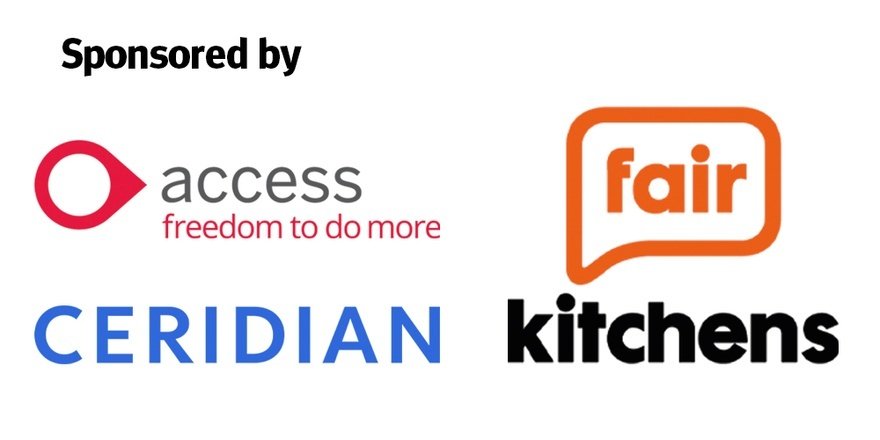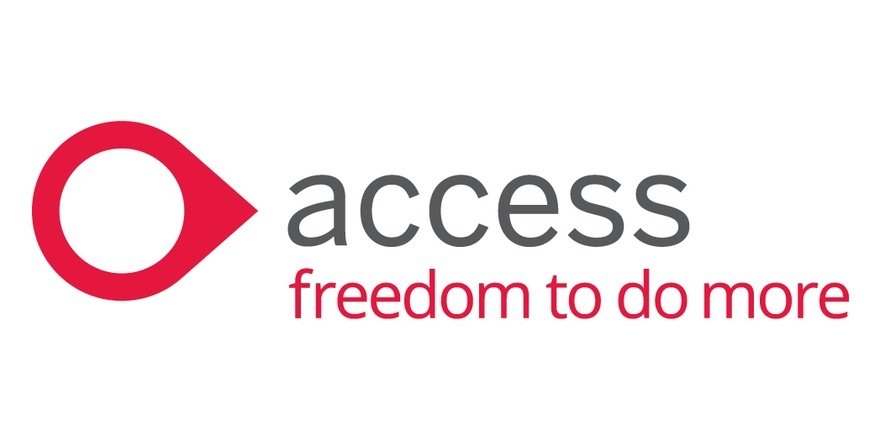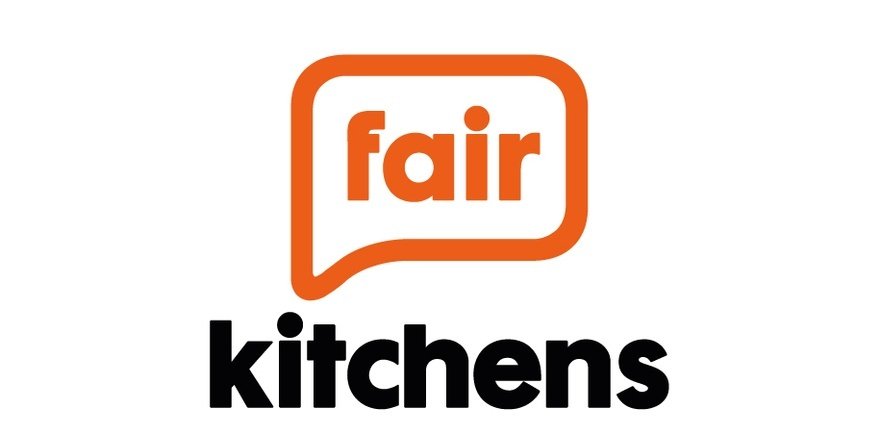Unprecedented times call for unprecedented measures, and the message from industry leaders at The Caterer's People Summit was to embrace change and use it as a force for making a positive difference. We explore the latest advice on looking after your greatest asset: your people.
Day 1
Creating a rewarding working environment
Sally Beck, general manager, Royal Lancaster London
Will Beckett, founder and chief executive, Hawksmoor
Sonya Dodson, HR partner, Access Group
Amanda Scott, director of talent, learning and D&I, Compass Group
Day one of the 2020 People Summit kicked off by looking at how things had changed for businesses during lockdown – both the lows and the highs. Sally Beck, general manager of the Royal Lancaster London, urged delegates to: "Celebrate the wins, no matter how small, and share all the good news stories."
Celebrate the wins, no matter how small, and share all the good news stories
She spoke of how the initial lockdown had "been a long haul" and how she expected the second lockdown to be just as tough, if not tougher. The challenge, she said, was "to be resilient and to try not to feel overwhelmed."
Communication was high on the agenda for Will Beckett, founder and chief executive of Hawksmoor, who was grateful for the advantages of the Access Workspace platform, allowing his businesses to have centrally planned communications, with an update from him on a fortnightly or sometimes weekly basis.
Hawksmoor's interactions also included video messages and a suite of training modules that all employees were able to access, with resilience and change management among the subjects. "All of our staff were contacted once a month by phone by the management team – we did our best to make it clear why we made the decisions we did," said Beckett.
Amanda Scott, director of talent, learning & D&I at Compass Group, described how her team had dealt with concerns around returning to the business post-lockdown. "We had very different needs at all the varying sites and our priority was to keep the staff informed," she said. "We also set up a nurse helpline, so anyone with any concerns could talk to a nurse directly. It was important that people wanted to come back to work.
"This is a constantly evolving situation, and it's not going away any time soon. It's a hugely uncertain time for employees and we all need to take a long-term view."
Sonya Dodson, HR partner at Access Group, told delegates that Access had set out to empower their line managers, with a shopping list of online training courses to support them, during and post-lockdown.
"We regularly shared the details of our employee assistance programme, as well as online courses, and we used an online tool that allowed colleagues to record ‘shout out' acknowledgments to their peers for acts of kindness or significant actions that had made an impact," she explained.
Beck suggested that it was crucial to remember during these times that there was strength in asking for help and knowing that if you do ask it will be well received. "A no-blame culture is vital, as well as in-built resilience. We should answer the difficult questions and do it with compassion and honesty – even if those answers are not good."
The subject of redundancies across the industry was, of course, reviewed, with all the panellists disclosing that their businesses had suffered from job losses, after having taken full advantage of furlough and other government support packages.
Compass has been able to redeploy several staff across other sites, and many staff at the Royal Lancaster had reduced their hours or taken sabbaticals.
Hawksmoor's approach was to offer options and support and a ‘no fault or blame' philosophy. Beckett said: "The pandemic is no one's fault – well, maybe a little bit of the government's fault – and we tried to keep that in mind. Nevertheless, we are a people industry and we're having to let people go – people who we really, really like, and that's so hard."
The long-term message was cautiously optimistic, with all agreeing that the government is now more aware of how important the hospitality industry is to the economy, with the sector earning a renewed respect for what it brings to communities and the labour market.
Asked for their key messages for staff, Beck said that she needed her teams to be flexible, with an "all in it together mentality," while Dodson hoped we would all try to show more empathy, and think about other people's challenges.
Beckett suggested the best relationships right now were based around mutual commitment: those in work who were glad and keen to be there, with a willingness to be flexible, and the employer and senior members of staff making sure they are mirroring that behaviour.
From our sponsor
Access Hospitality is a division of leading business software provider the Access Group, which was created to cater for the UK's £73b hospitality sector.
More than 1,300 customers across the UK use its modular, scalable cloud-based business management suite, which features more than 20 integrated Software as a Service (SaaS) solutions specifically designed for hospitality operations. Its solutions include EPoS, reservations, finance, property maintenance, purchase to pay and workforce management. Access People for Hospitality is a powerful and intuitive cloud-based HR and labour optimisation system that enables busy, multisite hospitality owners to streamline their HR and workforce management processes.
Day 2
The future of work
- Kristofer Karsten, head of HR, Ceridian
- Jacqueline Moyse, vice-president of organisational development, Mandarin Oriental Hotel Group
- Eugenio Pirri, chief people and culture officer, Dorchester Collection
- Janene Pretorius, director of people, the Ivy Collection
"We've asked a lot of our workforces during the pandemic and they've really risen to the challenge; however, the rigid operating models and outdated workforce management strategies of the past are not going to be effective post-pandemic," claimed Ceridian's head of HR Kristofer Karsten on a panel discussing the future of work in hospitality.
He and his fellow panellists agreed that the obstacles created by coronavirus have meant hospitality businesses have had to be more flexible and adaptable than ever, such as looking at different ways of creating revenue and using the workforce across different roles.
Jacqueline Moyse, vice-president of organisational development at the Mandarin Oriental hotel group, said: "Our learning has jumped a mile. It probably would have taken 18 months for us to move to where we've moved to in the last six months and I don't think that will ever go back."
She offered the Japanese concept of kintsugi, repairing something that has been broken, as a mantra: "How do we rebuild something to make it more valuable and stronger than it was before?" She said she and her colleagues have been constantly questioning old processes and systems.
How do we rebuild something to make it more valuable and stronger than it was before?
Online training and communication have, of course, become a mainstay for every business following lockdown earlier this year, but the panellists didn't necessarily feel that all training will be digital in the future.
Eugenio Pirri, chief people and culture officer at the Dorchester Collection, said that although he had been surprised at how effective online training can be, he still felt it should be in combination with in-person training.
All agreed that the starting point for planning to reopen had been clear leadership. Mandarin Oriental group ran a month of online activities with its senior teams looking at resilience, wellness and empathy to give them the confidence to support their staff.
Janene Pretorius, director of people at the Ivy Collection, said the group had similarly developed wellbeing sessions to ensure managers were not absorbing the stress of their teams, including mental health champion courses and a mental health call line. Having an in-house safety expert helped inform managers and reassure the teams that their safety was a priority for the business, she said.
On returning to work, one of the challenges has been cross-training workforces. At the Dorchester Collection, Pirri said at one point more than 60% of its workforce was doing more than three jobs, while the Ivy Collection has been training staff across brands and restaurants and had brought the learning and development team on-site.
Moyse pointed out that framing it as a growth opportunity for staff has been important, as well as ensuring they have the skills to do the various jobs that are now coming under their remit. She said: "It's not just about putting bodies into that department, it's making sure that they are confident and we've given them the core skills to do that job."
"Employee health and safety and wellness will continue to be a priority for any organisation that wants to maintain positive employee experiences," said Karsten. Pretorius highlighted the importance of responding to the varying anxiety of team members: while the majority were excited to be back, for some it was a source of anxiety. She said that the Hospitality Action employee assistance programme had been "invaluable" for staff.
From our sponsor
Continuous disruption is the new normal for retail and hospitality companies as fierce competition fuels a need for ongoing innovation and a renewed focus on the customer.
Dayforce can help you transform and engage your workforce to keep pace with rapid change, delivering value today and in the future. With nearly eight million people in the UK working in either the retail or hospitality sectors today, companies need to modernise their systems to handle the growing workforce. Dayforce can help organisations streamline workforce management and reduce admin time to focus more on customers.# Day 3
The new normal and managing coronavirus in the workplace
- Jessica Foster, legal director, TLT
- Steve Rockey, people director, Lime Wood Group and Home Grown Hotels
- Sean Wheeler, people and culture consultant
Poor mental health among young men has the potential to become a "massive issue" for the hospitality industry in future, the panel on the third day of the People Summit warned. The concerns were highlighted during a discussion on managing coronavirus in the workplace.
Steve Rockey, people director at Lime Wood Group and Home Grown Hotels, said the business has seen a real increase in employees asking for help over the past two to three months.
He said: "We put in a mental health first aid programme in the first quarter of this year and have highlighted that to people during lockdown. Once the euphoria of the hotels being back open died down, we started to see a lot more mental health first aid cases. Two weeks ago we had two chefs in different hotels who highlighted that they had thought of suicide.
"For whatever reason, it is men in their early 20s who are the ones putting their hands up [for support]. The more we can help them the better."
He said the hotel company has added mental health training into its apprenticeship programme to give people the tools to help them later in their career.
During the first national lockdown it also took steps to help staff feel included while furloughed, sending out regular video updates from its chairman Robin Hutson.
"It was important from a cultural perspective to let people know that they were still one of us and we were all in it together," he said.
People and culture consultant Sean Wheeler, who is supporting the opening of the Grand hotel in Birmingham, said he was training new team members in emotive learning as well as traditional skills.
He said: "We've got a lot of new leaders who we've done a lot of work with on emotional intelligence, helping them to read body language from colleagues and guests. I think people have learned a lot about themselves and how to deal with a team and a crisis and can support each other in those situations."
Jessica Foster, legal director at law firm TLT, said she had worked with clients who had found it beneficial for senior members of their company to be open with staff about their own struggles with mental health.
"They've seen it be useful because it's filtered down and opened up lines of communication across the business," she said.
Wheeler added that companies that treat staff well were likely to see greater loyalty from employees in the long term.
He said: "People will be much better leaders coming out of this. It's easy to go back to normal but people will remember those acts of kindness where they've been shown respect and flexibility during this time. When the market does pick up, don't let those things disappear. I think retention and loyalty will be much better [in future]."
People will be much better leaders coming out of this
Day 4
Supporting your team to excel
- Jane Sunley, founder and chairman, Purple Cubed
- Robert Cook, chief executive, TGI Fridays
- Julia Edmonds, managing director, Lexington Catering
- Jo Simovic, chief operating officer, Umbrella Training
While the industry has understandably been devastated by the scale of job losses, with colleagues forced to bid each other farewell, employers must remember to look after those that remain. That was the message from day four of the People Summit, which focused on supporting colleagues in the coming months.
Lexington managing director Julia Edmonds said it had been extremely difficult for those having to make staff redundant, particularly as it was not due to performance issues. She said: "It is obviously tough for those that have to go, but also for those that have to deliver the message. For us it has been about making sure we explain why we're having to do it to the employee and being there to help them once they go.
"For those left behind they have the emotional rollercoaster of seeing their colleagues go and then taking on additional responsibilities."
This can lead to a sense of survivor's guilt, explained Umbrella Training chief operating officer Jo Simovic: "All leaders have been so focused on dealing with the staff that were leaving with kindness and empathy that they haven't paid enough attention to those who are staying," she said. "It's now how we support those people that will make a real difference."
Part of that support is likely to be a continuation of the communication that was upped during the first lockdown, said Edmonds, who found that employees at all levels were being more honest about how they were feeling.
"What's most important is to listen to people," she added. "Really talk to people about what they need to be successful. Some great talents have emerged through this – the way people have stepped up has been incredible. It's important to acknowledge that and recognise it."
At TGI Fridays the pandemic had exposed some employees with talent that might have otherwise been missed, according to chief executive Robert Cook.
"This has unearthed so much talent in our business," he said. "We asked each site to nominate representatives and it has uncovered many people who weren't leaders in the business but showed real leadership qualities. We now need to grasp that talent and use it to reshape our business. One thing is for sure: we're in a new world and we need to adapt.
"Too often even pre-Covid we put someone in an over-elevated position and they would sink. We now need to address that and support this young talent."
Too often even pre-Covid we put someone in an over-elevated position and they would sink. We now need to address that
Simovic added that operators should now focus on ensuring their teams are prepared for the challenges ahead and that those who have shown leadership should be developed and encouraged.
She said: "We're seeing lots of people shining because of their qualities, but we need to follow up with structured development to support their roles. We now need strategic development of new talent in our businesses.
"Currently we're all clearing the tables, but at some point we have to look up and address what's ahead of us."
Day 5
Mental health – supporting your teams to thrive
- Andrew Berrie, head of workplace wellbeing programmes (delivery), Mind
- Andrew Clarke, founder, Pilot Light
- Alex Hall, executive chef, Unilever Food Solutions
- Chantelle Nicholson, chef-owner, Tredwells
- Camilla Woods, services director, Hospitality Action
The pandemic has been as much a mental health crisis as a physical one, according to Andrew Berrie, head of workplace wellbeing programmes at Mind.
Speaking on day five of the People Summit, which addressed the issue of supporting mental health in the workplace, Berrie said that from a survey of 16,000 people, one in five who previously had no experience of poor mental health said their mental health was poor or very poor during the height of the pandemic.
"This goes further with recent Office for National Statistics data suggesting the prevalence of depression has doubled," he added.
The scale of the problem was reinforced by Camilla Woods, services director at Hospitality Action, who reported that a recent survey by the charity found that Covid-19 had been the biggest concern among hospitality workers; the pressure of work, under-resourcing and long hours were also key reasons for people to feel stress and anxiety.
These pressures have meant wellness in professional kitchens has long been an issue, Pilot Light founder Andrew Clarke pointed out.
"People are more open to the conversation but there are still some real horror stories," he said. "Though this is a great time to talk about mental health, there are still many restaurants and leaders acting like we're still in the past."
There can be some good stress in kitchens, said Tredwells and All's Well chef-owner Chantelle Nicholson, when everyone is working in unison driven by the adrenaline of service.
"You want to encourage that," she said. "But the pressure can be too great, which stops people from performing their jobs. You need to treat people as individuals and have an understanding of how your team works. You need to be specific about shifts and workload for each person."
Engaged management is critical to employee wellness, particularly in professional kitchens where chefs might not have received the correct training, said Alex Hall, executive chef at Unilever Food Solutions and ambassador for the #FairKitchens project.
"Many chefs appear as managers because they have great skills and can cook great food, but it doesn't mean you can manage a person. We need to grow those resources and tools so that chefs and front of house can expand their horizons," he said.
Nicholson added: "I always say to my team that cooking is the easy bit. The soft skills are harder to teach. Some of us have age and experience on our side but, for me, it's about constant communication and passing on knowledge."
The most important thing to do is listen to individual concerns and circumstances, added Berrie.
"Broader themes to address include making sure you have regular check-ins," he said "Making sure staff are aware of how they can get in touch, and being clear on priorities, particularly when things are changing at such pace. Make sure you can create a space for those open and honest conversations and ensure that you can definitely invest time in the conversation."
Make sure you can create a space for those open and honest conversations and ensure that you can definitely invest time in the conversation
Woods added: "It's about having the conversation and showing empathy, but also understanding where your boundaries are and when to signpost help from elsewhere."
Those resources include advice available on the #FairKitchens website (see below) as well as from Mind, Hospitality Action and Pilot Light. The overall message was to ask for help and open lines of communication so that it is possible to have a reflective and understanding conversation, whether you are suffering or looking to support someone who is.
Signs that someone is struggling
- Changes in behaviour. Are they more withdrawn?
- Struggling with day-to-day tasks
- Changes in punctuality
- Struggling with decision-making
- Appearing tired
- Change in habits, such as eating less or more, or drinking and smoking more
- Increased number of errors or forgetting tasks
- Greater tendency towards conflict.
From our sponsor
The #FairKitchens project is a global movement fighting for a more resilient, sustainable industry – because our businesses will only thrive when the people who work there thrive.
It aims to bring about this change by connecting hospitality people from across the globe and shining a light on those businesses who prioritise their people as much as their profit. #FairKitchens works with a network of industry partners to provide training and resources that teams and managers can learn from to make the change we need practical and achievable.
Join the movement by following #FairKitchens on Instagram and Facebook and checking out our website at www.fairkitchens.com.


















